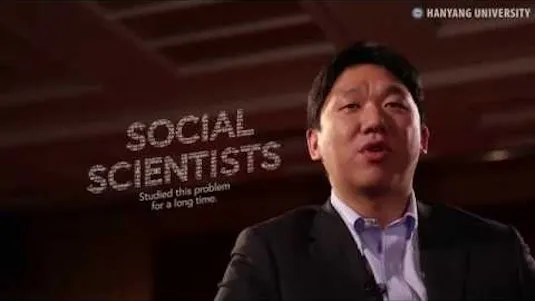
An introduction to crime and criminology 
This course provides an introduction to crime and criminology. It explores how social scientists and criminologists study and seek to understand crime. You will develop an understanding of the causes of crime, the different types of crime, and the various approaches to crime prevention. You will also learn about the legal and social responses to crime, and the ethical implications of these responses. The course will equip you with the knowledge and skills to think critically about crime and its consequences. ▼
ADVERTISEMENT
Course Feature
![]() Cost:
Cost:
Free
![]() Provider:
Provider:
OpenLearn
![]() Certificate:
Certificate:
Free Certification
![]() Language:
Language:
English
![]() Start Date:
Start Date:
Finished
Course Overview
❗The content presented here is sourced directly from OpenLearn platform. For comprehensive course details, including enrollment information, simply click on the 'Go to class' link on our website.
Updated in [May 25th, 2023]
Crime and criminology is a fascinating field of study that can provide learners with a comprehensive understanding of the causes and consequences of criminal behavior. Learners can gain an understanding of the various theories of crime, including biological, psychological, and sociological theories, and how they can be applied to the study of crime. Additionally, learners can explore the various methods used to study crime, such as surveys, interviews, and observational studies. Finally, learners can gain an understanding of the various strategies used to prevent and control crime, such as policing, sentencing, and rehabilitation. By studying crime and criminology, learners can gain a better understanding of the criminal justice system and the role of law enforcement in society.
[Applications]
After completing this course, students can apply their knowledge of crime and criminology to their everyday lives. They can use their understanding of the causes and consequences of crime to inform their decisions and actions. Additionally, students can use their knowledge to become more informed citizens and to advocate for social change. They can also use their understanding of criminology to pursue further study or a career in the field.
[Career Paths]
1. Crime Analyst: Crime analysts use data to identify patterns and trends in criminal activity, and develop strategies to reduce crime. They also provide research and analysis to law enforcement agencies, and may be involved in developing crime prevention initiatives. This role is becoming increasingly important as technology advances and data becomes more accessible.
2. Forensic Scientist: Forensic scientists use scientific methods to analyze evidence from crime scenes. They may specialize in areas such as DNA analysis, toxicology, or ballistics. This role is becoming increasingly important as technology advances and new methods of evidence analysis are developed.
3. Criminal Justice Policy Analyst: Criminal justice policy analysts research and analyze criminal justice policies and procedures, and develop recommendations for improvement. They may also be involved in developing new policies and procedures, and in evaluating the effectiveness of existing policies. This role is becoming increasingly important as governments seek to improve the effectiveness of their criminal justice systems.
4. Corrections Officer: Corrections officers are responsible for the supervision and security of inmates in correctional facilities. They may also be involved in providing counseling and rehabilitation services to inmates. This role is becoming increasingly important as governments seek to reduce recidivism rates and improve the effectiveness of their correctional systems.
[Education Paths]
1. Bachelor of Science in Criminology: This degree program provides students with a comprehensive understanding of the causes and consequences of crime, as well as the legal and social implications of criminal behavior. Students learn about the criminal justice system, the psychology of crime, and the sociology of crime. This degree is becoming increasingly popular as the demand for criminologists grows.
2. Master of Science in Criminal Justice: This degree program provides students with an in-depth understanding of the criminal justice system, including the legal, social, and psychological aspects of crime. Students learn about the history of criminal justice, the role of law enforcement, and the impact of crime on society. This degree is becoming increasingly popular as the demand for criminal justice professionals grows.
3. Doctor of Philosophy in Criminology: This degree program provides students with an advanced understanding of the causes and consequences of crime, as well as the legal and social implications of criminal behavior. Students learn about the history of criminology, the psychology of crime, and the sociology of crime. This degree is becoming increasingly popular as the demand for criminologists grows.
4. Master of Laws in Criminal Justice: This degree program provides students with an in-depth understanding of the legal aspects of criminal justice, including the history of criminal law, the role of law enforcement, and the impact of crime on society. Students learn about the legal system, the criminal justice process, and the ethical implications of criminal justice. This degree is becoming increasingly popular as the demand for criminal justice professionals grows.
Course Provider

Provider OpenLearn's Stats at AZClass
Discussion and Reviews
0.0 (Based on 0 reviews)
Explore Similar Online Courses

AI foundations for business professionals

Clojure - from beginner to advanced

Python for Informatics: Exploring Information

Social Network Analysis

Introduction to Systematic Review and Meta-Analysis

The Analytics Edge

DCO042 - Python For Informatics

Causal Diagrams: Draw Your Assumptions Before Your Conclusions

Whole genome sequencing of bacterial genomes - tools and applications

Criminology and Criminal Psychology Certified CSI+ Course

Criminology : Fundamentals of Criminal Psychology and Law

Economics of Crime
 Related Categories
Related Categories
 Popular Providers
Popular Providers
Quiz
 Submitted Sucessfully
Submitted Sucessfully
1. What is the main focus of the course?
2. What is the goal of the course?
3. What is the primary tool used to study crime?
4. What is the main goal of the course?
Correct Answer: To develop an understanding of crime and criminology.


Start your review of An introduction to crime and criminology